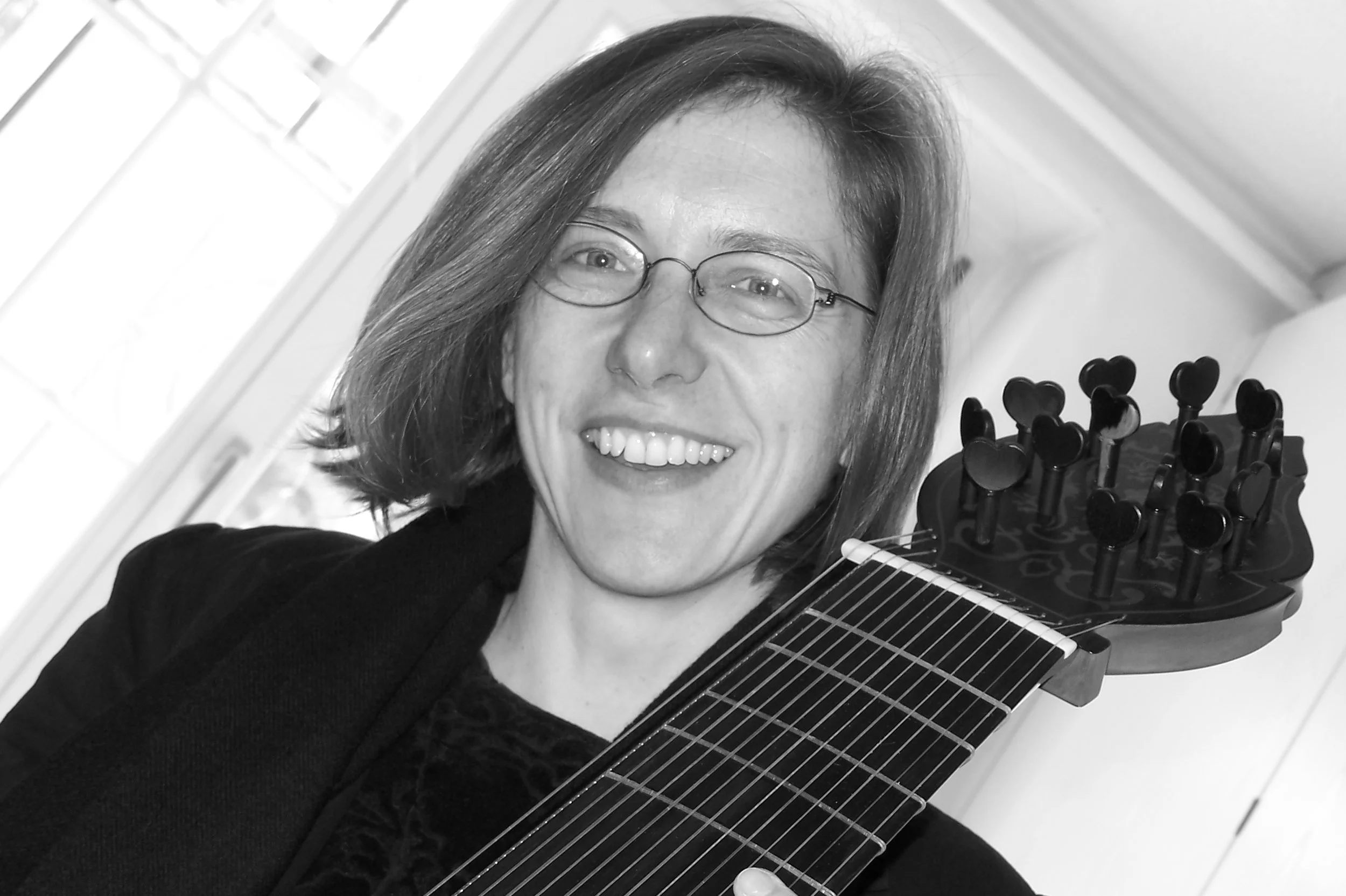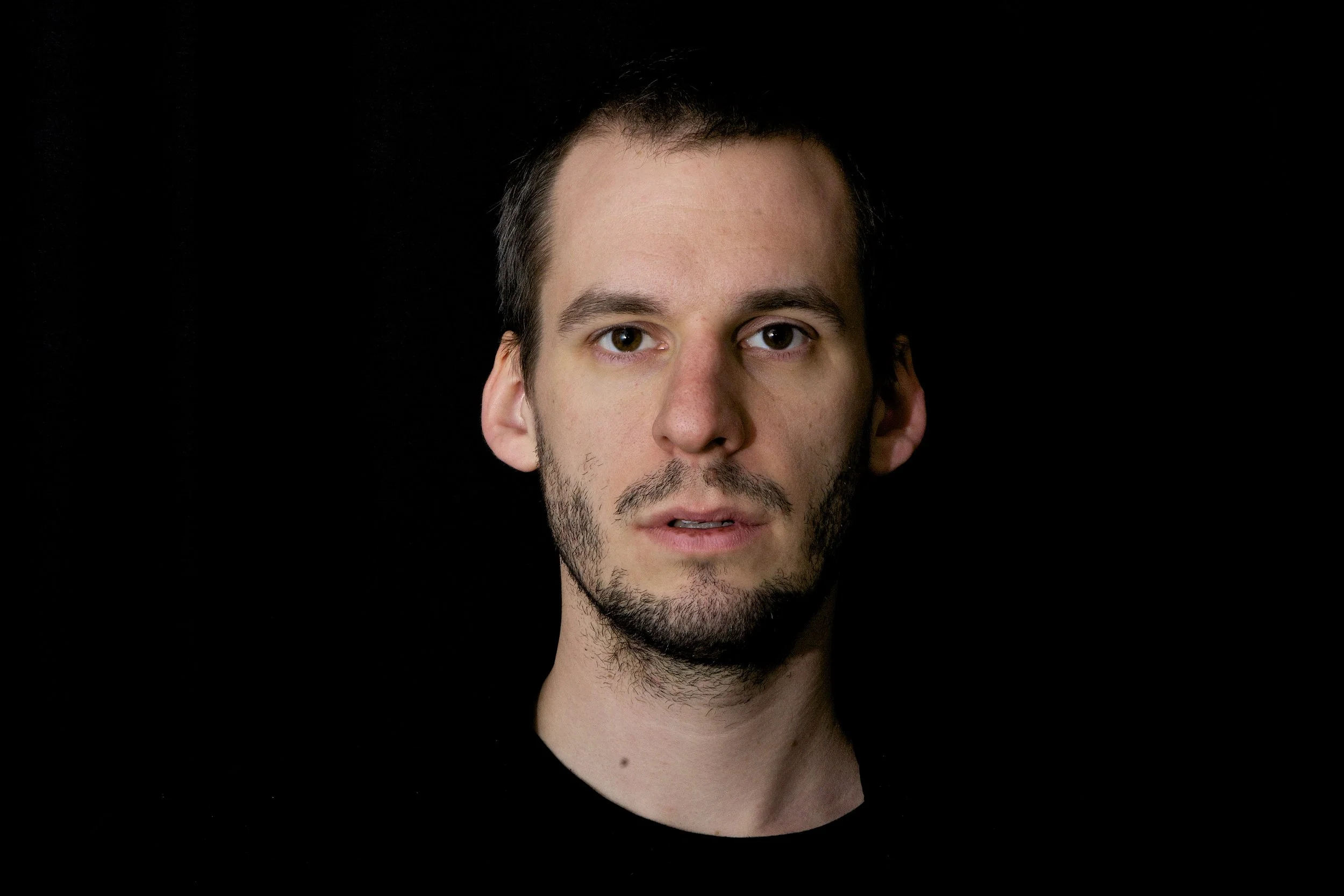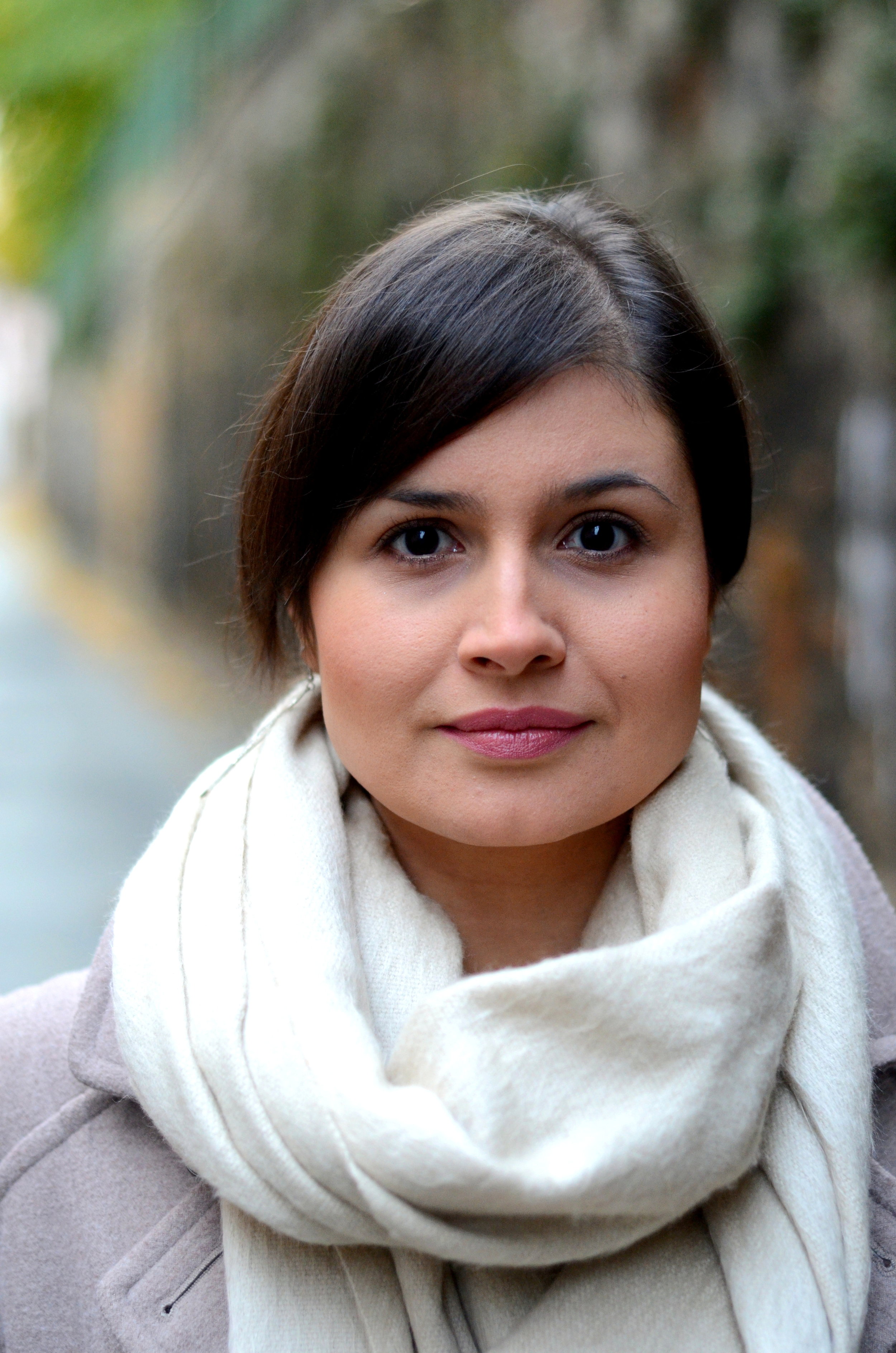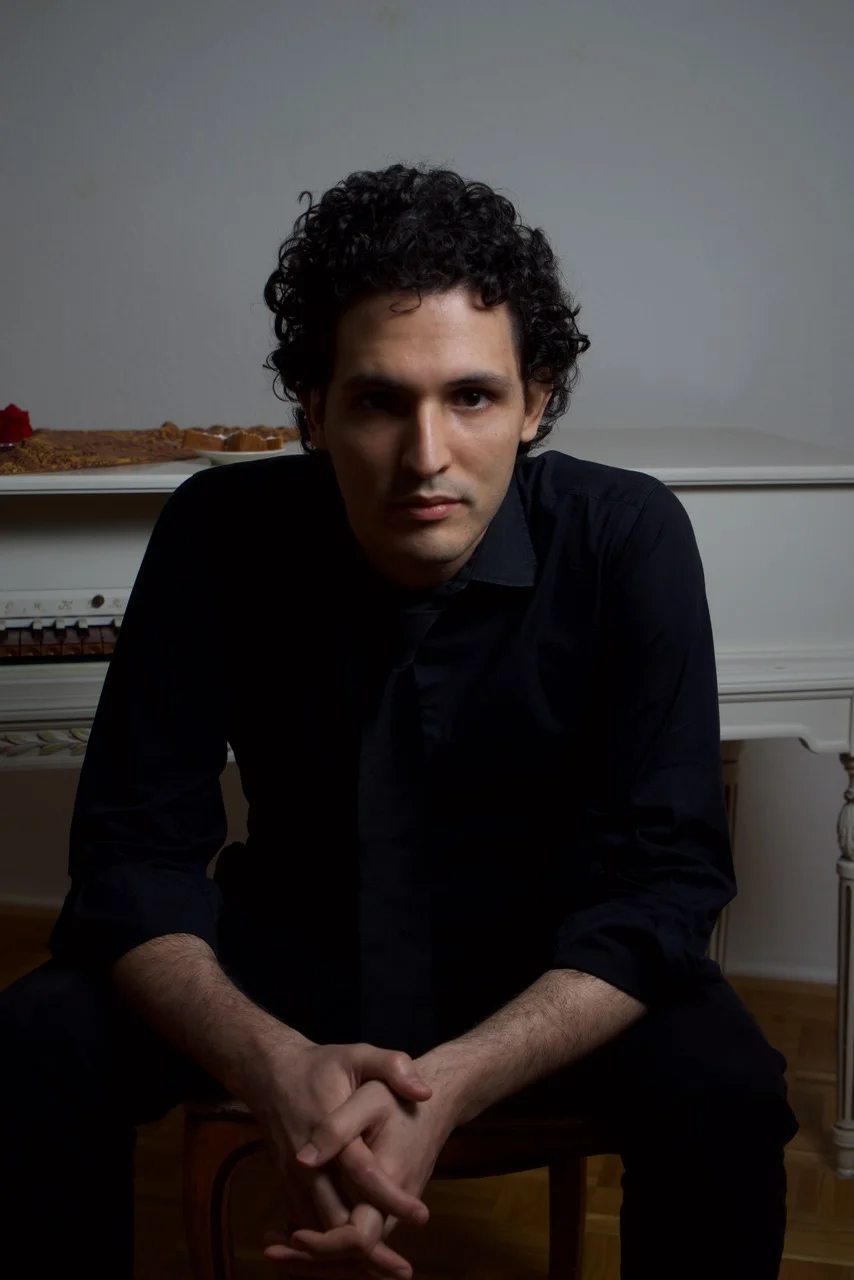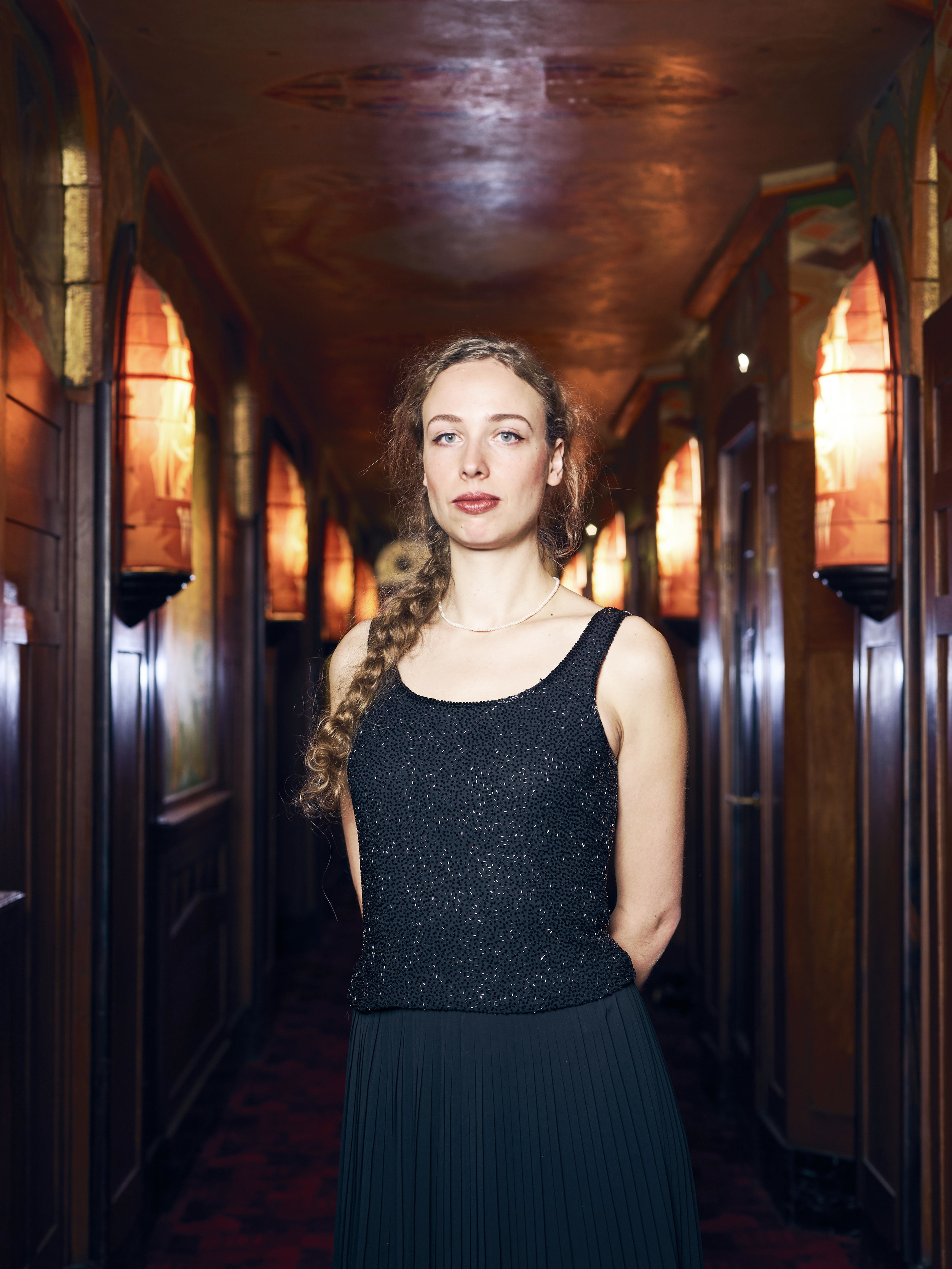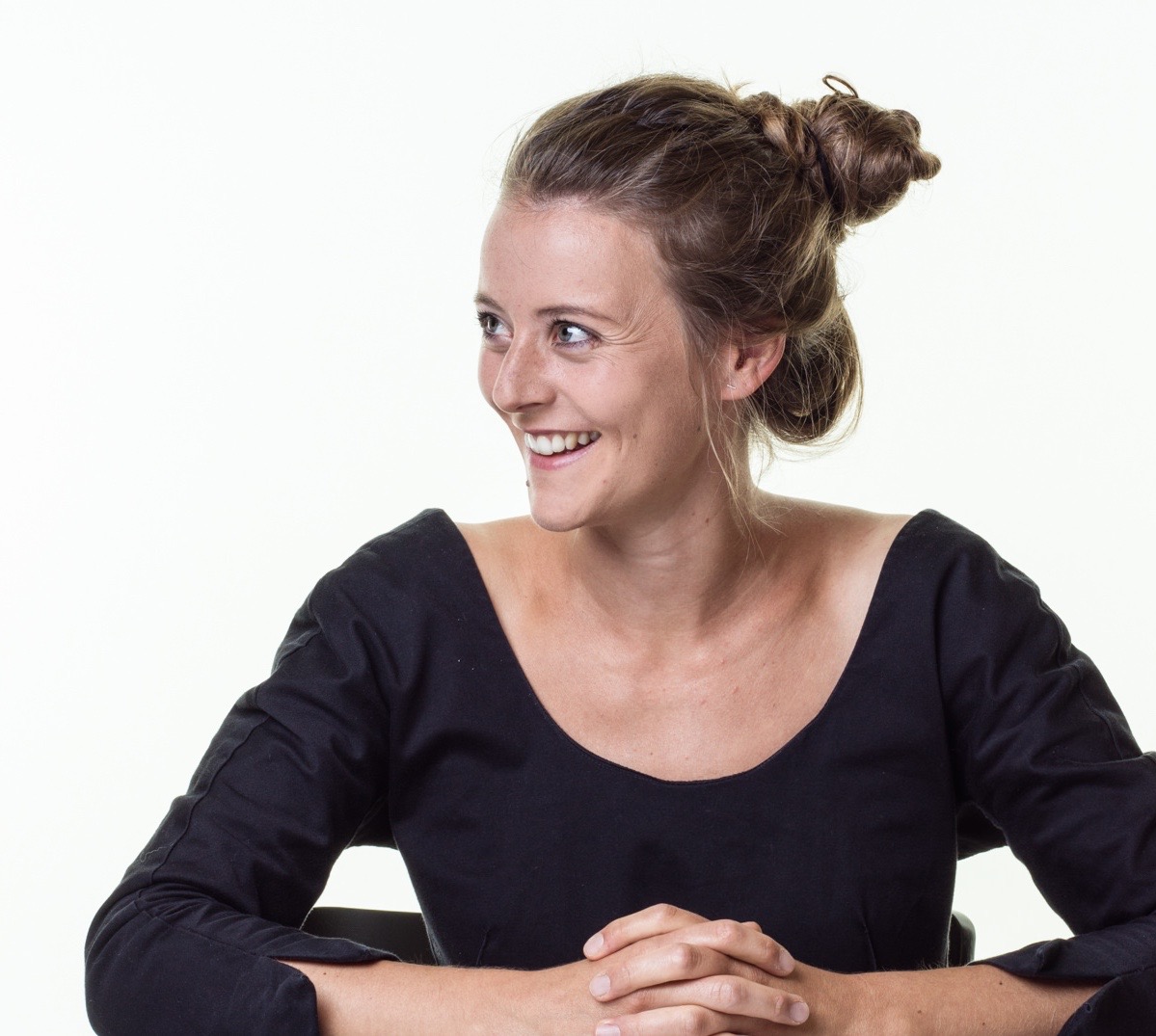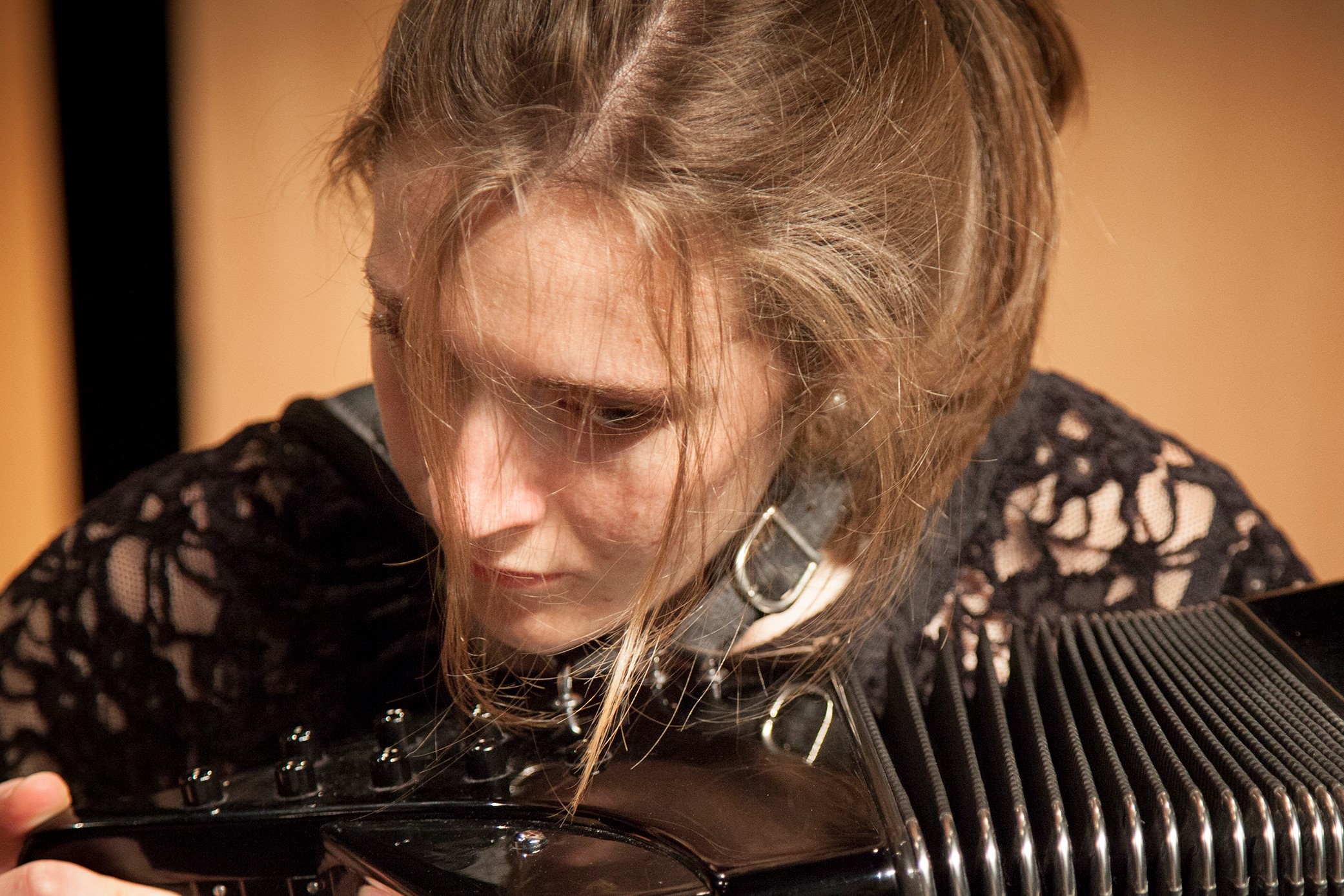Musicians
Studio31 regularly collaborates with these highly specialised musicians.
Names are listed in alphabetical order.
Alice Borciani, soprano
Born in Reggio Emilia (Italy), Alice Borciani graduated in trumpet and in singing at the conservatory of Reggio Emilia. She specialized in Baroque vocal repertoire with Monica Piccinini. In 2012 she graduated with distinction at the Schola Cantorum Basiliensis under the guidance of Gerd Türk. In 2005 she won the International Music Competition “Premio Città di Padova”.
She performed on many opera and concert stages in Europa, Japan and South America with conductors such as Andrea Marcon, Sergio Azzolini, Jordi Savall, Diego Fasolis, Leonardo Garcia Alarcon and Thomas Hengelbrock.
She performs regularly with the Balthasar-Neumann Chor, the Capella Reial de Catalunya, La Cetra Vokalensemble and the Choeur de Chambre de Namur as well as with Vox Luminis, Zürcher Sing-Akademie, La Fonte Musica, Servir Antico and Melpomen. She is also interested in contemporary music and she has taken part in various operas, concerts and first performances of contemporary pieces.
Guglielmo Buonsanti, bass
Guglielmo Buonsanti started his musical studies in Vicenza with Margherita Dalla Vecchia. Enthusiastic about improving his music skills, he continued studying Organ and Composition at the Conservatory of Music of Vicenza, until he finally began taking singing lessons with Lia Serafini, Marco Scavazza, Walter Testolin and Baltazar Zuniga. In February 2010 he graduated in Musicology at the University of Pavia in Cremona. In February 2015 he obtained a master degree in Renaissance and Baroque singing led by Patrizia Vaccari and Lia Serafini at the Conservatory of Music of Vicenza. In April 2016 he completed a master diploma in 'Advanced Vocal Ensemble Studies' (AVES) held by Anthony Rooley and Evelyn Tubb at the Schola Cantorum Basiliensis in Basel.
He attended various masterclasses with significant musicians and conductors, such as Diego Fratelli, Roberto Gini, Ton Koopman, Christopher Hogwood, Christopher Stanbridge, Roy Godmann, Alfredo Bernardini, Michael Radulescu, Sara Mingardo, Rinaldo Alessandrini, Pedro Memelsdorf. He regularly works with many ensembles, such as De labyrintho (W. Testolin), Concerto Italiano (R. Alessandrini), La Cetra Barockorchester & Vokalensemble (A. Marcon), Ghislieri Choir & Consort (G. Prandi), Cantar Lontano (M. Mencoboni), Il Canto d’Orfeo (G. Capuano), Costanzo Porta (A. Greco), Ricercare Ensemble (R. Adami), Odhecaton (P. Da Col), Micrologus (P. Bovi).
In addition, he’s a member of Dramatodia, an ensemble directed by Alberto Allegrezza, which aim is to re-evaluate important pieces of both vocal and theatrical Renaissance and Baroque Italian repertoire. As well, he’s a co-founder of the RossoPorpora Ensemble, an ensemble composed of young musicians, specialized in Renaissance and Baroque vocal repertoire, in particular a key musical component of the Renaissance period, the Madrigals.
Amélie Chemin, viola da gamba and violoncello
Amélie Chemin was born in Le Mans, France. She coursed her undergraduate studies in cello and chamber music in Caen and Lyon with honors. Later she became deeply intersted in the viola da gamba, and after a summer academy with Jérôme Hantaï, studied then with Emmanuelle Guigues in Lyon. In 2003 she became student of the Schola Cantorum Basiliensis in the class of Paolo Pandolfo, graduating in 2008. At the same time she studied baroque cello with Petr Skalka, renaissance viol and medieval fiddle with Randall Cook. She has taken masterclasses with Marianne Muller, Jordi Savall, Philippe Pierlot, Vittorio Ghielmi, A. Bylsma.
Since 2003 she has taken part to projects with , among others, W. Christie, T. Koopmann, J. Savall, A. Marcon, P. Pandolfo, A.Scholl, L.G.Alarcon, J. Rifkin, J. Christensen, B. Dickey, A. Rooley, V. Genaux, P. Petibon, M.Kozena. In 2008 combining her viola da gamba and cello skills, she got involved into a research on the romantic « Arpeggione », performing the famous Schubert Sonata on a copy of the original instrument (Gruyères Festival, Switzerland). She recorded the Couperin Duos for two viola da gambas with P. Pandolfo as well as Marais’ « Pièces à deux Violes » (Marais 1689). With Paolo Pandolfo she plays duo concerts and is his assistant in Summer masterclasses since 2008. She performs and records with «La Cetra Barockorchesters Basel», « Ensemble il Profondo » , « Ensemble La Traditora », «Opera Prima», «Concerto Scirocco», «Ensemble Mare Nostrum», « L’Achéron ». She plays in whole Europe, Turkey, Russia, Japan, South and North America and has recorded for Deutsche Grammophon, Ricercar, Glossa, Cantus, Tactus, ORF and others.
Anaïs Chen, violin
Anaïs Chen studied the modern violin in Zurich and Detmold before turning to the baroque violin, gaining Master’s degrees with distinction at the Universität der Künste Berlin and at the Schola Cantorum Basiliensis. She won several prizes at the Telemann Competition, Biber Competition, Premio Bonporti and others. In her international career as a soloist, concertmaster, chamber musician and with her Duo L'Istante and Ensemble Daimonion Anaïs Chen has performed in important venues in Europe and Asia. She has been regularly invited to perform with ensembles such as La Nuova Musica London, In Echo, Il Giardino Armonico, Il Profondo, Freitagsakademie Bern, Gli Angeli Genève, La Fenice, La Pifarescha, Berlin Baroque, La Cetra Barockorchester Basel, Kammerorchester Basel, Scintilla Zurich.
From 2010-2012 she was teaching baroque violin at the Hochschule für Musik Karlsruhe. Anaïs Chen particularly enjoys presenting Early Music in contemporary contexts, as can be seen in her projects EntreTempsor Passagen, performances joining baroque music to contemporary dance on stage. Her latest recording, violin sonatas by François Francoeur, has won a Diapason d'Or.
Hayden Chisholm, saxohpone
Hayden Chisholm is a New Zealand saxophonist and composer. After studying in Cologne with a DAAD scholarship he continued his music studies in Japan in India. In 1995 he developed a radical new microtonal system he termed "split scales" for saxophone which he revealed on his debut solo CD "Circe". Since then his compositions have been recorded by BBC and WDR radios and he has toured and recorded extensively with the likes of Root70, WDR Big Band, Musikfabrik Ensemble, and David Sylvian. He has created music for several Rebecca Horn installations as well as composing scores for her films. He has taught at Universities throughout the world and gives yearly master classes in Greece specializing in modern applications of the teachings of Pythagoras. He curates the annual Plushmusic festival in Cologne. In 2013 he released the 13 Box Set "13 Views of the Heart's Cargo" and received the German SWR Jazz Prize. In 2014 he released his second 13CD set "Cusp of Oblivion". In 2017 he directed the Thessaloniki Jazz Festival and the Dortjol Festival in Belgrade.
Hans Feigenwinter, keyboard instruments
Hans Feigenwinter wurde 1965 in Basel geboren. Als Teenager tourte er mit Popgruppen.
Bald darauf absolvierte er das Studium für Klavier an der Swiss Jazz School in Bern.
Zentral ist für Feigenwinter die Entwicklung seiner Instrumentalsongs, die sich zwischen Improvisation und Komposition bewegen, von Kleinst- bis Grossformationen und von akustischem bis elektronischem Klangbild reichen.
In den letzten Jahren realisierte er seine Musik mit den Gruppen «Hans Feigenwinter ZINC» oder «FEIGENWINTER 3». FEIGENWINTER OESTER PFAMMATTER widmet sich dem Jazz-Kanon und legt das Schwergewicht auf Interaktion. Eine weitere Konstante in Feigenwinters Arbeit stellen die Solokonzerte dar; sie sind meistens von Totalimprovisation bestimmt.
Als Sideman trat Feigenwinter u.a. mit Jonas Windscheids «PAINTBOX», «Herbie’s Explo 3000», Woody Shaw, Franco Ambrosetti, Joe Lovano, Billy Hart, Buddy de Franco, dem Peter Schärli Sextett oder Chico Freeman in Erscheinung.
Feigenwinter unterrichtet an den Musikhochschulen Basel und Luzern.
Ana María Fonseca, keyboard instruments
Brigitte Gasser, viola da gamba and lirone
Brigitte Gasser studied the viol at the Schola Cantorum Basiliensis with Jordi Savall and was awarded her diploma in 1990. She gives numerous concerts throughout Europe with different chamber music groups and as a soloist. Her repertoire spans from the 15th century to contemporary music. In addition she teaches the viol at the Conservatory in Bern. She participates regularly in radio and CD recordings, amongst others with the ensemble Daedalus, The Earle his Viols and Concerto di Viole, of which she is a founder member. She has taken part in opera projects at the Grand Théâtre in Geneva, the Theater Basel, the Festspiele in Innsbruck and the Opera in Zürich. Besides her work with stilistic careful copies of viols ranging from the 16th to the 18th centuries, she is also fascinated by the sonority and the harmonique possibilities of the lirone as a continuo instrument.
Eva-Maria Hamberger, keyboard instruments
Eva-Maria Hamberger (Thüringen, Austria) studied piano, graduating with honours in 2013. Additionally she studied viola and harpsichord. The following year (2014), she graduated from Johannes Hämmerle's harpsichord class, likewise with honours. She studied piano with Benjamin Engeli (2013-2015) and is enrolled in the performance master's programme at the Schola Cantorum Basiliensis (since 2014), where she is studying harpsichord with Jörg-Andreas Bötticher and fortepiano with Edoardo Torbianelli.
Eva-Maria Hamberger won various prices as well as special prices at „Prima la Musica“. 2013 shewas awarded with the ABA-Award of the Austria Barock Akademie together with her siblings (Ensemble ConCorda). With her ensemble diletto musicale she was awarded with the price of theaudience at the „göttingen händel competition 2017“.
Her special interest lies in the fields of chamber music as well as in musicology (research on the cimbalo cromatico, dissertation in preparation). She is founding member of various ensembles, including the Ensemble ConCorda and the Ensemble diletto musicale. Since 2014 she is the artistic director of forum alte musik : sankt gerold.
http://www.eva-maria-hamberger-music.com
Ivo Haun, tenor
Born in France and raised in Brazil, Ivo Haun moved to Basel (Switzerland) in 2010. Five years later he finished his Master's degree at the Schola Cantorum Basiliensis under the guidance of Gerd Türk, complementing this thereafter with instruction from Richard Levitt.
His main areas of interest are the virtuosic singing style of the Renaissance and Early Baroque periods, the practice of improvisation (including improvised counterpoint), historical acting techniques, rhetoric and its application to musical performance, the historical pronunciation of European languages and Latin, historic tuning systems, and the use of original notation in music ranging from the 14th to the 17th century. More recently, he started exploring the Renaissance lute.
Whenever he needs a break from his intensive work with several Early Music ensembles, Ivo finds peace in the woods or on the top of a mountain, away from other humans and from any kind of technological device.
Katharina Haun, cornetto
Katharina Haun is a cornetto player that is interested in all the possibilities and excitements of her instrument. The fact that the „correct“ fingering does not automatically lead to the „correct“ note opens endless possibilities in regard to music with more than 12 pitches per octave.
To explore these possibilities and look for colors and sounds on her instrument is one of her goals and is set to be a life-long journey of fun (and sometimes exhaustions) with her instrument.
She is currently studying cornetto in her master’s degree in Schola Cantorum Basiliensis and has finished recorder degrees in Kunstuniversität Graz and Mozarteum Salzburg. It is important to her to be and stay a versatile musician and therefore works as a choir conductor, music pedagogue and musicologist next to her professional activity as a cornettist.
Martyna Kazmierczak, keyboard instruments
Martyna Kazmierczak, born 1992, is a Polish keyboardist specializing in historical performance of the
classical piano repertoire. She has completed her undergraduate studies at the Royal Academy of Music, London, in the class of Pascal Nemirovski and Carole Cerasi, and is currently studying at the Schola Cantorum Basiliensis, in the fortepiano class of Edoardo Torbianelli.
Martyna’s passion for rediscovering the core keyboard repertoire started in 2013, when she visited
Christopher Hogwood’s instrument collection in a private research trip to Cambridge and spent a day
discussing musical topics with the maestro. The precious encounter led onto a performance of the earliest keyboard music published in Europe – „Parthenia” in London’s British Library on a 16th century virginal. Since then, Martyna has engaged in seeking convincing means of expression within performance of early music, and building an intimate relationship with historical instruments. She has performed at the Buckingham Palace, the Hatchlands Park and Händel & Hendrix House in London; her most recent fortepiano recitals of the classical Viennese repertoire took place at the Dartington Festival and the Edinburgh Fringe.
While in Basel, Martyna’s desire has been to expand her understanding of the musical language. At Studio31 she has worked within both tonal and experimental harmonic realms, combining historical approaches, an unconventional sound experience and a fresh and modern presentation. Martyna is a keen speaker: she regularly gives lecture-recitals at the Museum für Musik Basel.
Johannes Keller, keyboard instruments
Johannes Keller finished his studies at the Schola Cantorum Basiliensis in 2010 (degree in harpsichord, basso continuo and ensemble leading, with Jörg-Andreas Bötticher, Jesper Christensen and Andrea Marcon). Since then, he focused as a freelance musician on various aspects of historical music performance, mainly in the fields of music theatre, chamber music and the reconstruction and use of particular instruments. In this context, he specialised on keyboards with more than 12 keys per octave, their repertoire and their cultural context. He initiated the Studio31 research project in 2015 and has become one of the three main representatives of the activities around Studio31, next Martin Kirnbauer (musicology) and Caspar Johannes Walter (composition).
Simon Linné, theorbo
I spent my childhood in a musical home in the countryside close to Stockholm (Sweden). Ever since, closeness and contact to nature has been a never-ceasing source of inspiration, creativity and humility. At home I was influenced by all kinds of music ranging from heavy metal to classical. I started with the classical guitar, but my fascination for lute music was initiated already after a few months when I got my first LP, which was a seed that eventually brought me to the lute. As a lute player, I'm especially interested in neglected music for the instrument, and I find it fascinating how much of it can stand amongst the more familiar classics of the lute repertoire.
When I'm not practicing and performing lute concerts, I travel through Europe and the world as a continuo player. Since the autumn of 2006, I teach lute and basso continuo at the College of Arts in Bremen. Apart from music, I've always enjoyed sports, maths and hand craft. A peak of technical creativity in my childhood was a self-designed Lego chassis with four wheel drive. I like to spend my time outside with physical activities like hiking or wood chopping and snow shovelling at our family cottage. Appropriate to my tall body and its corresponding appetite, I'm always an appreciative fellow when it comes to most kinds of good food.
Lina Lopez, soprano
Born in Medellin, Colombia. Started her musical studies at the age of 16. In 2000 she was awarded a place to be taught composition and singing by Andres Posada and Danaila Hristova at the EAFIT University in Medellin, where she gained her BA in singing in 2006.
In 2008 she began an MA at the Schola Cantorum Basiliensis in Switzerland, specializing in the interpretation of early music under Rosa Dominguez. As a Soloist, she has sung in works including Bach’s “St Matthew Passion”, Claudio Monteverdi's "Il Vespro della Beata Vergine", Dietrich Buxtehude's "Membra Jesu Nostri", W. A. Mozart's "Vesperae solennes de confessore", G. B. Pergolesi's "La serva padrona", Franz Schubert's "G dur Messe", John Rutter's "Magnificat", Alessandro Scarlatti's "Penelope la Casta", Carl Heinrich Graun's "Montezuma", G. F. Handel's "The Messiah", "Esther" and "Deborah", among others.
She has worked with ensembles such as La Fenice (Jean Tubery), Collegium Vocale Gent (Philippe Herreweghe), La Grande Chapelle (Albert Recasens), Musica Temprana (Adrian Van der Spoel), Elyma and Capilla Panamericana (Gabriel Garrido), Musica Caeli Graz (Franz. M. Herzog), Melpomen (Conrad Steinmman), La Cetra Barockorchester Basel (Andrea Marcon-Federico Sepulveda), Orquesta Sinfonica de Colombia (Felipe Aguirre), Daimonion Ensemble (Anais Chen‐Maria Gonzalez). She often works as well with the Argentinian lute player Gabriel Schebor and the Spanish arpist Manuel Vilas Rodriguez.
Florencia Menconi, mezzo-soprano
The Argentine mezzo-soprano, Florencia Menconi, born in 1987 in Buenos Aires, began her singing studies with Poly Barrios and had her first contact with the performance of Early Music with the Argentine vocal ensemble Hoquetus. After moving to Europe in 2013 in order to specialize at the Schola Cantorum Basiliensis (Basel, Switzerland), Florenciaconcluded her Bachelor of Arts in Music (specialization: Singing) as student of Rosa Domínguez. Currently, she is doing her Master’s studies (Master in Musical Performance) at the same institution.
Florencia is a member of Novantik Project Basel, an ensemble that performs Early and contemporary Music on the same stage. Since 2017 she takes part in Requiem for a Piece of Meat (by Daniel Hellmann), a co-production between Novantik and 3art3 Company.
Florencia also collaborates with certain frequency with the following groups: Anton-Webern-Chor (Hans-Michael Beuerle), La Cetra (Andrea Marcon), BernVocal (Fritz Krämer), Ensemble Vivante (Anne-Marie Dragosits), Ensemble Turicum (Luiz Alves da Silva), Capella Sancta María (Enrique López-Cortón), Ensemble Orlando Fribourg (Laurent Gendre), Musica Temprana (Adrian Van der Spoel), La Grande Chapelle (Albert Recasens), Capella Sacra (Cyril Pallaud), Domus Artis (Breno Quinderé) and I Discordanti (Florencia Menconi).
In June 2014 she founded I Discordanti, an ensemble of young musicians dedicated to the performance of 17th century Italian Music. I Discordanti has performed in festivals and concerts in Switzerland (Festtage Alte Musik, Basel), Italy (Pavia), Germany (Göttingen), France (Vézelay and Ambronay), and Spain (Festival Internacional de Arte Sacro, Madrid).
Stephen Menotti, trombone
Stephen Menotti is a freelancing trombonist living in Basel, Switzerland. His passion for contemporary music has led him to perform with numerous ensembles including musikFabrik, Klangforum Wien, Ensemble Modern, and the Remix Ensemble. Stephen studied with James Desano at Oberlin College (USA) and with Mike Svoboda at the Musikhochschule in Basel (CH). He regularly performs the music of Karlheinz Stockhausen, appearing in the world premieres of SONNTAG aus LICHT and MITTWOCH aus LICHT. He has performed as a soloist at the Lucerne Festival, Festival d’Autumne and in the Warsaw Autumn Festival. Stephen is a member of the Eunoia Quintet and Collegium Novum Zürich.
Daniel Mentes, countertenor
Hi, My name is Daniel Mentes, and I'm a countertenor from Hungary. I was born in 1992 and at the age of 8 I started to play the trumpet, which I played for more than 10 years. Among Hungarian musicians there is a joke according to which everybody is born a trumpet player, but some people keep studying and change instruments. When the time was ripe, I took that proverbial step and started singing. Leipzig was my stop, where I studied with Marek Rzepka. After 3 years, when the time was right again for the next step, I looked for a place to study where there are good teachers, an open and inspiring environment, and a place where I can research and find my way in the maze of early music. All these critera are fulfilled by the Schola Cantorum Basiliensis and in the person of Gerd Türk! I am learning a lot day by day, and I feel at the same time, that there are so many things that I don´t know, but I do want to know! My mission in life is to share my love for music and to worship my Creator and Savior, to whom I am very thankful for my voice, for my skills, and for everything else that I have! Soli Deo Gloria!
Christoph Prendl, keyboard instruments
Christoph Prendl studied harpsichord with Brett Leighton and Viola da Gamba with Claire Pottinger at the Bruckner-Universität Linz in Austria. He continued to study the Viola da Gamba and early string instruments with Paolo Pandolfo and Randall Cook at the Schola Cantorum Basiliensis, where he completed his Master of Arts in 2011. In the same year he was awarded a special prize at the Telemann- competition in Magdeburg (Germany) for the best improvised ornamentation. In 2012 he completed a masters degree in music theory with Johannes Menke and Felix Diergarten. He gave concerts at the „Innsbrucker Festwochen der Alten Musik“, at the festival Oude Muziek in Utrecht, at the „Telemann-Festtage Magdeburg", in the Bach House in Eisenach and regularly performs with the Balthasar Neumann Ensemble, Les Cornets Noirs and Maddalena del Gobbo. He recently completed his PhD in musicology at Würzburg University on austrian music theory in the 17th century. Furthermore, he has been teaching music theory at the academies of music in Mannheim, Trossingen and Freiburg im Breisgau (Germany).
Breno Quinderé, bass-baritone
Breno Quinderé is carioca, name for those who are native of Rio de Janeiro, born in 1987. He lived in his hometown until his early 20's, at which point he immigrated to Basel to study singing and early music. Since then Breno has achieved a lot, both academically and as a music performer, and has also been given and experienced a great deal while living among Europeans and the Swiss.
Other than graduating with a Bachelor's and Master's degrees in vocal performance at the Schola Cantorum Basiliensis (SCB), he collaborates with several ensembles and directors from around Europe performing repertoires that go from the Renaissance to the Romantic era, sometimes stretching out further to contemporary music. Breno also directs his own musical band, the ensemble Domus Artis, where he cultivates his love for the interpretation and diffusion of Renaissance music. Nowadays, Breno studies singing with the Argentinean voice teacher Rosa Domínguez.
He lives with his wife, Florencia, in the Gundeli neighborhood in Basel where they also have Margarita, their cat. He is also a practitioner of Japanese martial arts and is very fond of all that relates with spirituality in life.
Josías Rodríguez Gándara, theorbo
Er studierte klassische Gitarre an Conservatorio Ataulfo Argenta und Conservatorio Jesus de Monasterio mit Juan José Sáez Gallego und Paulino García Blanco. Gleichzeitig hat er elektrische Gitarre in verschiedenen Stile(Pop,Rock, Metal und Jazz) studiert. Er hat noch Renaissnce und Baroque Zupfinstrumente in Real Conservatorio Superior de Música von Madrid mit Jose Miguel Moreno studiert. In 2006 ist in Scola Cantorum Basiliensia,Basel akzeptierte um mit Hopkinson Smith zu studieren.
Josías hat mit verschieden Ensemble und Orchester gespielt und aufgenommen,wie La Cetra Barockorchester, English Baroque Soloist, Venice Baroque Orchester, Il Giardino Armonico, Les Musiciens du Louvre,Kammerorchester Basel und Berliner Philarmoniker. Er hat in verschiedene Oper Produktionen gespielt in Frankfurt Opernhaus, Kassel Opernhaus, Teather Basel und Freiburg Opernhaus. Er hat mit Sir John Elliot Gardiner, Andrea Marcon, Marc Minkowsky, Giovanni Antonini, Robert King,Paul Goodwin, Philippe Herreweghe, Jean-Christophe Spinosi,Philippe Jarousky, Placido Domingo,Patrícia Petibon, Magdalena Kozena.
Gleichzeitig hat er konzertätigkeit als Elektrische Gitarrist und Flamenco Gitarrist. Er ist Mitglied von Ensemble Il Profondo, Basel. Er hat in verschieden Musikschule durch Schweiz unterrichtet. Er hat Yamaha Music School in Santander, Spanien gegründet.
Eva Saladin, violin
Eva Saladin, of Dutch and Swiss origins, studied Bachelor and Master on modern violin with Kees Koelmans and baroque violin with Lucy van Dael at the Amsterdam Conservatory. In 2013 she finished her Master on baroque violin at the Schola Cantorum Basiliensis with Leila Schayegh summa cum laude. During her studies in Basel, she was a regular member Rudolf Lutz’s improvisation class.
She is currently living in Basel, Switzerland, and is working as a freelance musician combining orchestra projects, chamber music and solo recitals with repertoire from the early seventeenth until the nineteenth century. Part of her work is experimenting with different playing styles and techniques on the violin, improvisation and embellishment, as well as exploring the history of violin music editions.
She is the leader of her own Ensemble Odyssee in Amsterdam and performs regularly and in leading positions with many different groups, such as La Cetra Barockorchester Basel, Gli Angeli Genève ll Profondo, Profeti della Quinta, Les Passions de L’Ame, St. Galler Bachstiftung, Ensemble Daimonion, appearing on festivals and in series like Oude Muziek Nederland, Freunde Alter Musik Basel, Basler Festtage für Alte Musik, La Folia Rougemont, York Early Music Festival, Potsdam Sanssouci, St. Michel-en-Thierarche, RheinVokal, Mainzer Musiksommer, Festival de Saintes.
She has recorded several CDs for Resonando, PanClassics, Glossa, Cantus and BrilliantClassics.
Vera Schnider, harp
Vera Schnider ist mit historischen und modernen Harfen freischaffend tätig. Sie ist Gründungsmitglied des Ensemble Proton Bern für Neue Musik und gestaltet das Ensemble seither aktiv mit. Als Barockharfenistin führten sie Auftritte mit diversen Ensembles von der Schweiz über ganz Europa. Daneben ist sie aktive Orchestermusikerin im Zürcher Kammerorchester und dem Luzerner Sinfonieorchester. Mit ihrem Trio ZARIN MOLL (2 Stimmen und Harfe) lotet sie in jährlichen Produktionen performative Konzertformen aus und nähert sich dem klassischen Repertoire von der Improvisation her. Sie hat ihren ersten Master an der Musikhochschule Luzern bei Prof. Xenia Schindler erlangt, weitere Studien zum Master Instrumentalsolist führten sie zu Prof. Godelieve Schrama nach Detmold (D). Ihren dritten Masterabschluss erlangte sie an der Schola Cantorum in Basel in Fach historische Harfen - sie spielt Instrumente des Mittelalters, des Früh- und Spätbarock, sowie Pedalharfen des frühen 19. Jahrhunderts und moderne Harfe.
Dubee Sohn, keyboard instruments
Dubee Sohn, born 1989 in South Korea, has been living and studying music in Europe since 1999. She graduated in piano from the Universität für Musik und darstellende Kunst Wien, Austria in 2014 and since 2013 she began her studies in harpsichord with Gordon Murray at the same university. Currently she is studying with Andrea Marcon at the Schola Cantorum Basiliensis in Basel. Dubee Sohn performs as soloist, chamber musician and as continuo player (i.a. La Cetra Barockorchester) throughout Europe and performed in venues as the Wiener Musikverein amongst others.
Csongor Szántó, bass
Csongor Szántó, ungarischer Herkunft, begann seine musikalische Karriere als Mitglied und Solist der Wiener Sängerknaben, und bereiste so grosse Teile der Welt als musikalischer Botschafter Österreichs. Ebenso erhielt er bereits früh Klavierunterricht. Nach seiner Schulzeit (Matura mit künstlerischen Schwerpunkten in Musik und Polyästhetik) begann er zunächst ein Kompositionsstudium bei Herbert Lauermann an der Universität für Musik und darstellende Kunst Wien. Weiterer Instrumentalunterricht in Oboe, Bratsche, Kontrabass, Gambe und Cembalo. 2008 wechselte Csongor zur Gesängspädagogik und studiert mit Peter Thunhart. Seine Masterstudien absolvierte er in Basel an der Schola Cantorum, mit Rosa Dominguez (Barockgesang), Kathleen Dineen (Mittelaltergesang), und mit Eveyln Tubb / Anthony Rooley (Advanced Vocal Ensemble Studies).
Csongor singt regelmässig mit LaCetra, den Basler Madrigalisten, und blickt auf rege Konzerttätigkeit mit dem Arnold Schoenberg Chor (Erwin Ortner) und dem Chorus sine nomine (Johannes Hiemetsberger) zurück. Seit 2015 ist er Sänger des auf mittalelterliche Musik spezialisierten Ensembles Ordo Virtutum (Johannes Stefan Morent), und trat als Ensemblesänger europaweit und in Südamerika auf.
Er ist Mitbegründer des Ensemble Alerĭon, einem internationalen auf Madrigale spezialisierten Ensemble.
Solistisch trat Csongor mit einem Programm aus Liedern zum 1. Weltkrieg in Oxford, New York, Wien und beim Festival Gmunden mit der Pianistin Karin Wagner auf. 2016 erschien das Programm als CD bei Gramola Wien.
Fred Uhlig, violone
Fred Uhlig stammt aus Leipzig und studierte zunächst modernen Kontrabass in Weimar bei Prof. Horst-Dieter Wenkel und Prof. Dominik Greger. Seine Liebe zur Alten Musik und sein Interesse an historischen Bassinstrumenten veranlasste ihn nach abgeschlossenem Studium nach Basel an die ScholaCantorum zu David Sinclair zu kommen.
Seitdem konzertiert er mit führenden Ensembles der Alten Musik wie z.B. mit dem La Cetra Barockorchester, Les Passions de l’âme und dem Capricornus Consort. Ausserdem wirkte er bei zahlreichen CD- und Rundfunkproduktionen dieser Ensemble mit. Darüber hinaus beschäftigt er sich mit Instrumentenbau und kopiert historische Bassinstrumente und Bögen der Renaissance und des Barock.
Maria Zubimendi, quartertone-accordion
Born in Zumaia (Gipuzkoa- Euskadi) in 1994. She began her accordion studies with Miren Iñarga and later she did her Bachelor in accordion in Musikene (Donostia- San Sebastián) with Iñaki Alberdi, Aitor Furundarena and Miren Iñarga. After that, she moved to Basel- Hochschule für Musik (Switzerland) where she studied the Master SP in Contemporary Music with Mike Svoboda, Jürg Hennerberger and Marcus Weiss as tutors.
Zubimendi has won several prices in National and International Competitions, as the First Prize in Concorso Internazionale di Fisarmonica Santa Cecilia (Rome, Italy); the Second Prize in International Akkordeon Wettweberb Klinghental; the first prices in the National Accordion Competition of Arrasate (Infantil, Junior and Senior) or the First Price in the International Competition Arrasate Hiria.
Her activity is very focused on chamber music, although she also continues with her solo projects. She is one of the artistic directors of Trio Zukan, which is very committed to the new and young music creation. Zubimendi has also premiered a great deal of pieces by important composers as R. Lazkano, J.M. Sánchez- Verdú, C. Duque, S. Avramidou, I.Urrutia, M.E. Luc, etc. She has worked with many important ensembles during the last years, as Zone Experimentale, Ensemble Akoncert, PluralEnsemble and Ciklus Ensemble.






